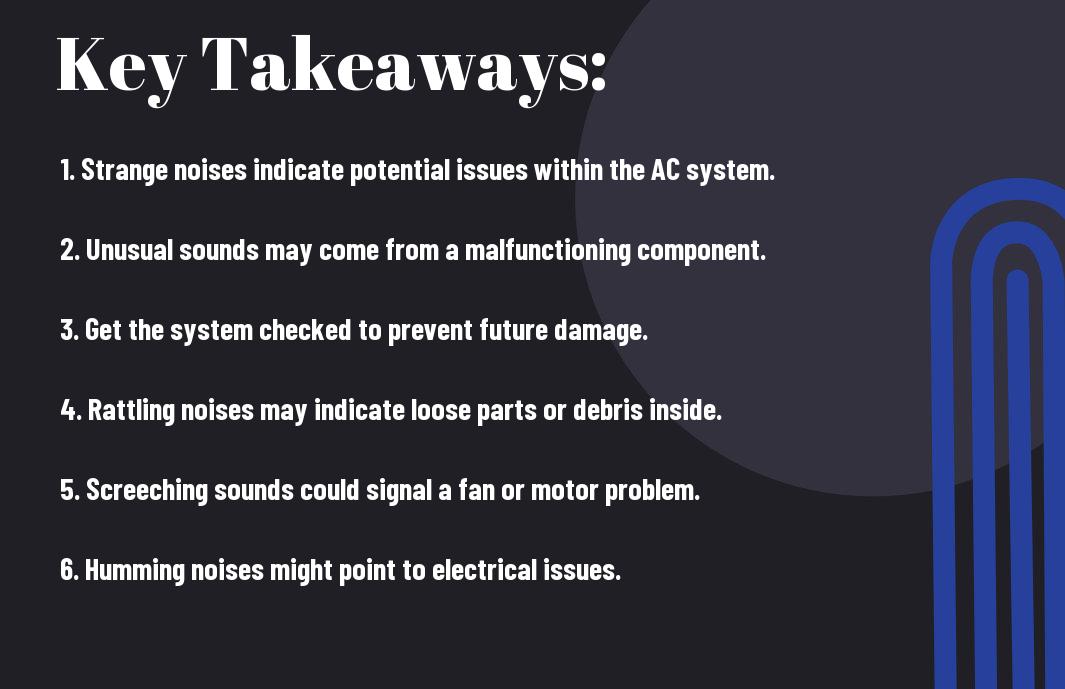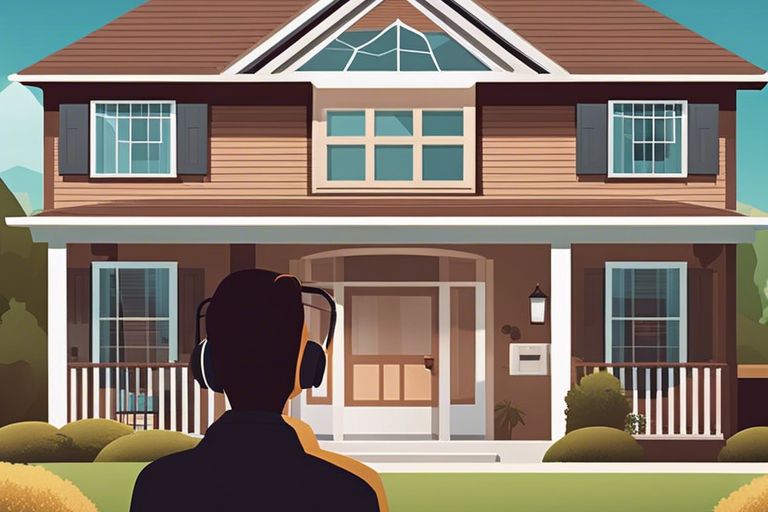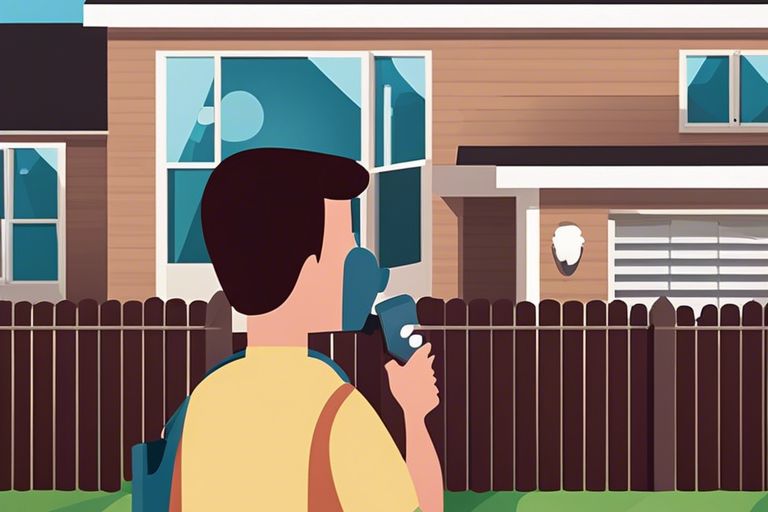Ever been enjoying a relaxing day at home when suddenly your AC system decides to throw a curveball with a weird noise? Don’t panic just yet! It might not be as alarming as it sounds. Understanding the different noises your air conditioning unit makes can give you some insight into what’s going on under the hood. Let’s unravel the mystery of those perplexing sounds your AC system produces and figure out what they might mean.
Key Takeaways:
- Early Detection: Strange noises from your AC system can be an early sign of a potential issue that needs attention.
- Varied Causes: These noises can be caused by a range of issues such as loose parts, clogged filters, or compressor problems.
- Professional Inspection: It’s advisable to have a professional HVAC technician inspect your system to diagnose and fix the problem.
- Regular Maintenance: Routine maintenance can help prevent unexpected noises and ensure your AC system runs smoothly.
- Don’t Ignore It: Ignoring strange noises from your AC system can lead to more significant problems and potentially costly repairs down the line.
Identifying the Noise
Clicking and Clacking
A common noise you may hear from your AC system is clicking and clacking. To identify this sound, pay attention to when it occurs—during startup, shutdown, or while the system is running. This noise could indicate issues with the blower assembly, fan blades, or electrical components.
Whirring and Whining
One of the more concerning noises is a whirring or whining sound coming from your AC system. This could signify problems with the motor bearings, loose or damaged fan blades, or a failing compressor. If you hear this noise, it’s best to turn off your system and contact a professional for inspection and repair.
Understanding the different noises your AC system makes can help you diagnose potential issues and prevent further damage. Regular maintenance and prompt repairs are important to keep your AC system running smoothly and efficiently.


Common Causes of Strange Noises
Loose or Faulty Parts
The last thing you want to hear coming from your AC system is a rattling or clanking sound. The culprit behind these noises is often loose or faulty parts within the system. Loose screws, bolts, or belts can vibrate and create these unsettling sounds. If you hear these noises, it’s crucial to address them promptly to prevent further damage to your AC unit.
Refrigerant Leaks or Low Levels
On a hot summer day, the sound of a hissing or bubbling coming from your AC unit can be alarming. This could be a sign of refrigerant leaks or low levels in the system. Refrigerant is crucial for the cooling process, and any leaks can impact the efficiency of your AC system. It’s crucial to have a professional HVAC technician inspect and repair any refrigerant leaks promptly.
Understanding the common causes of strange noises in your AC system can help you identify issues early and prevent costly repairs down the line. If you notice any unusual sounds coming from your AC unit, don’t ignore them. Addressing these issues promptly can help keep your home cool and comfortable throughout the summer months.
Diagnosing the Problem
Listening Closely
Despite the unsettling noise from your AC system, paying attention to the specific sounds can help in diagnosing the issue. One common noise is a grinding sound, which could indicate a problem with the fan motor or compressor.
Visual Inspections
On the other hand, sometimes the issue might be visible rather than audible. One key visual inspection to conduct is checking for any leaks around the unit or any loose parts that may be causing the strange noise.
A thorough visual inspection can also involve looking for any visible signs of wear and tear on the components of the AC system. Dust buildup, rust, or bent fan blades could all contribute to the strange noises coming from your unit.
Considering all points, when your AC system makes a strange noise, it could be a sign of a minor issue or a more serious problem. It’s important to pay attention to these sounds and address them promptly to prevent further damage and ensure your AC system functions efficiently.


Recent Comments